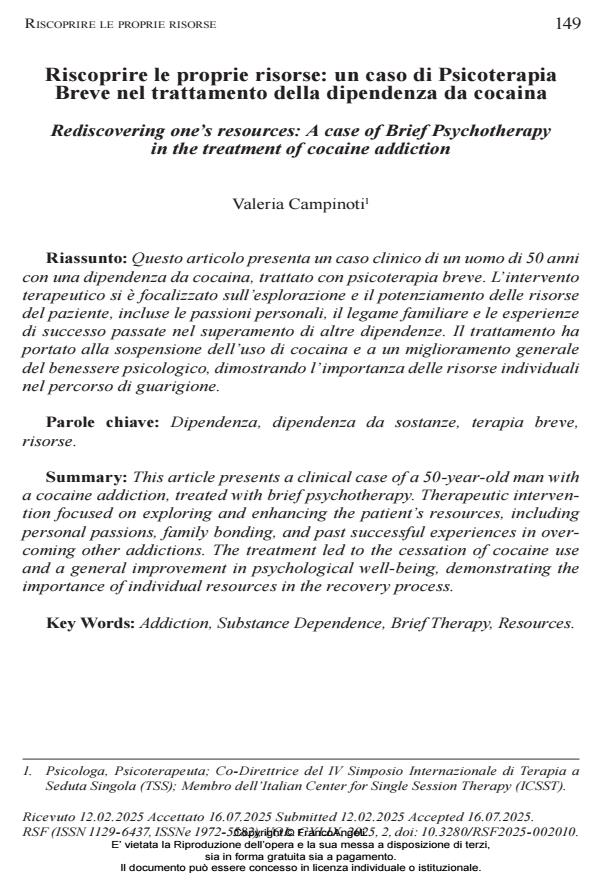Rediscovering one’s resources: A case of Brief Psychotherapy in the treatment of cocaine addiction
Journal title RIVISTA SPERIMENTALE DI FRENIATRIA
Author/s Valeria Campinoti
Publishing Year 2025 Issue 2025/2
Language Italian Pages 14 P. 149-162 File size 217 KB
DOI 10.3280/RSF2025-002010
DOI is like a bar code for intellectual property: to have more infomation
click here
Below, you can see the article first page
If you want to buy this article in PDF format, you can do it, following the instructions to buy download credits

FrancoAngeli is member of Publishers International Linking Association, Inc (PILA), a not-for-profit association which run the CrossRef service enabling links to and from online scholarly content.
This article presents a clinical case of a 50-year-old man with a cocaine addiction, treated with brief psychotherapy. Therapeutic intervention focused on exploring and enhancing the patient’s resources, including personal passions, family bonding, and past successful experiences in overcoming other addictions. The treatment led to the cessation of cocaine use and a general improvement in psychological well-being, demonstrating the importance of individual resources in the recovery process.
Keywords: Addiction, Substance Dependence, Brief Therapy, Resources.
Valeria Campinoti, Riscoprire le proprie risorse: un caso di Psicoterapia Breve nel trattamento della dipendenza da cocaina in "RIVISTA SPERIMENTALE DI FRENIATRIA" 2/2025, pp 149-162, DOI: 10.3280/RSF2025-002010